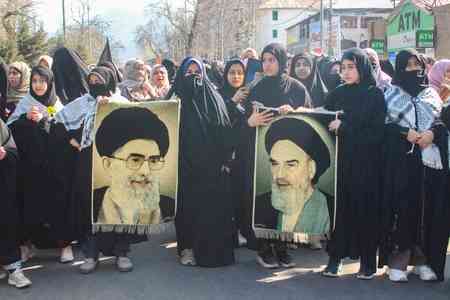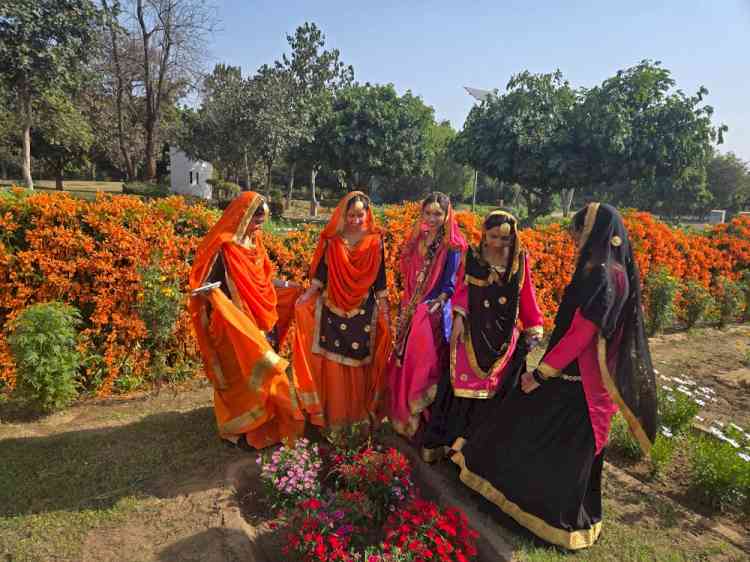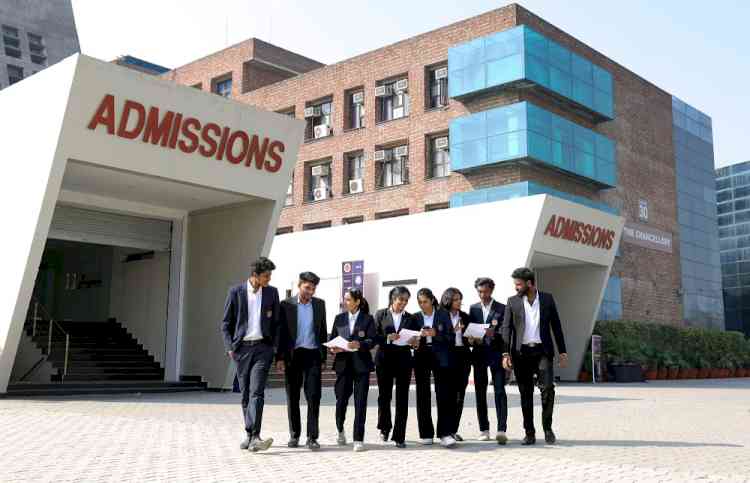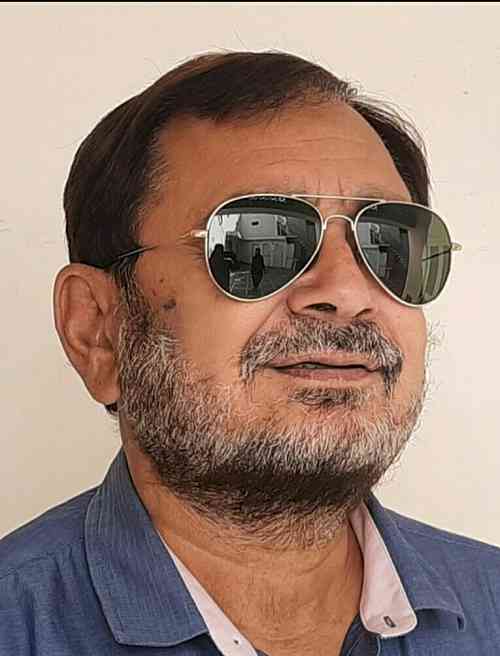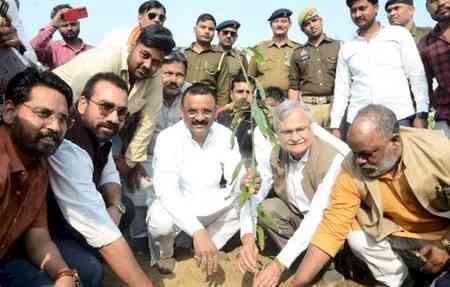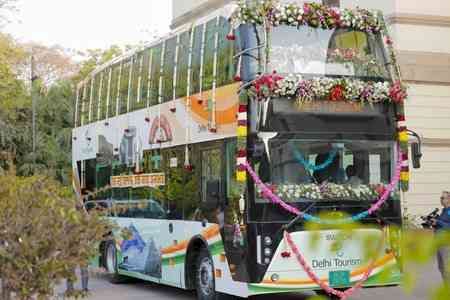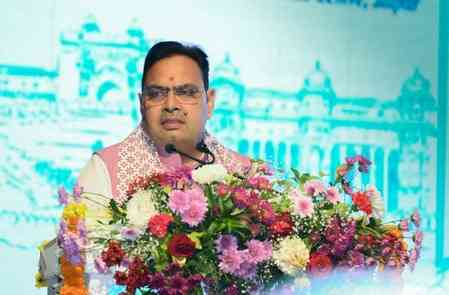KMV’s EcoEcho Fest Explores Contemporary Economic Challenges Through Art & Debate
Kanya Maha Vidyalaya (Autonomous) P.G. Department of Economics organized the EcoEcho Fest, focusing on pressing economic and social concerns—Brain Drain and Atamnirbhar Bharat—through a blend of intellectual debate and artistic performance. The event featured two major highlights: a Panel Discussion and Choreography, attracting wide participation and appreciation.
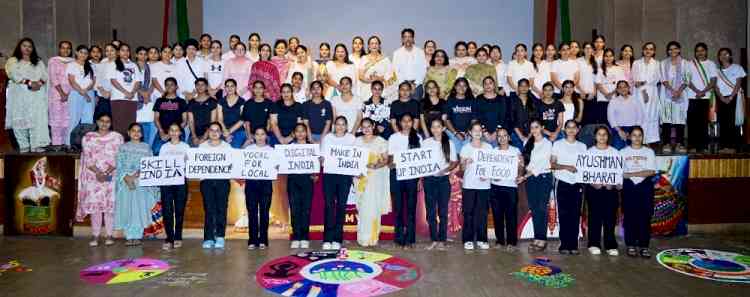
Jalandhar, August 27, 2025: Kanya Maha Vidyalaya (Autonomous) P.G. Department of Economics organized the EcoEcho Fest, focusing on pressing economic and social concerns—Brain Drain and Atamnirbhar Bharat—through a blend of intellectual debate and artistic performance. The event featured two major highlights: a Panel Discussion and Choreography, attracting wide participation and appreciation.
The programme commenced with a floral felicitation of the chief guest, Principal Prof. Dr. Atima Sharma Dwivedi.
Two choreographies were staged, beginning with Atamnirbhar Bharat, which beautifully portrayed India’s journey toward self-reliance. Students highlighted themes such as promoting indigenous industries, nurturing local talent, and envisioning a stronger nation built on unity and determination. Through expressive dance movements, symbolic formations, and gestures, the performance conveyed messages of empowerment and national pride.
The second choreography focused on Brain Drain, depicting the emotional and social aspects of skilled professionals migrating abroad in search of better opportunities. Students illustrated both the promise of global exposure and the pain of separation from their homeland, while also emphasizing the urgent need for better opportunities within India. Altogether, nine choreographies were presented, winning appreciation for their creativity, coordination, and impactful storytelling.
The Panel Discussion on Brain Drain explored its causes, consequences, and possible solutions, with students analyzing its particularly serious impact on Punjab. They discussed challenges such as the loss of skilled manpower, slower economic development, and dependence on foreign expertise. Some participants, however, also emphasized the potential of “brain gain” through remittances, knowledge transfer, and global exposure—if policies are strengthened to maintain strong ties with the diaspora. The debate concluded with suggestions to enhance employment opportunities, invest in research and innovation, and foster a supportive environment for young talent in India.
Additionally, seven panel discussions were held on Brain Drain and three on the Impact of U.S. Tariff Policies on the Indian Economy. Students from B.Sc. (Economics), M.Sc. (Economics), M.Com, M.B.A, B.Com, B.B.A, and M.Com (FYIP) participated with great enthusiasm. More than 200 students took part, showcasing both intellectual depth and creative energy.
Principal Prof. Dr. Atima Sharma Dwivedi praised the initiative, noting, “These kinds of events engage students’ intellect with contemporary issues through creativity and artistic expression. They not only make students better learners but also boost their confidence.” She further congratulated Amarpreet Khurana, Head of the P.G. Department of Economics, and the faculty team for the successful organization of the event.



 Rajat Kumar
Rajat Kumar 
